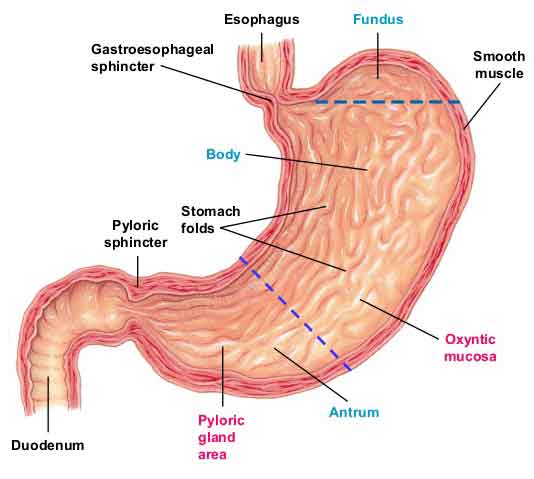
Researchers at Johns Hopkins University in Baltimore, USA are working on a new weight loss procedure called Bariatric Arterial Embolisation that reduces hunger levels by limiting the body’s ability to produce the “hunger hormone” grelin. Early trials have produced promising results and the researches at John Hopkins say the procedure is “minimally invasive” and safe.
What is Grelin?
Grelin is a hormone that is produced in several parts of the body including the brain, pancreas, and small intestine; but most of the body’s grelin comes from an area of the stomach called the fundus (located near the oesophagus).
Grelin performs numerous functions within the body, and has a role to play in the production of growth hormone, but it is generally deemed the “hunger hormone” because it stimulates the appetite. Unfortunately, when people embark on a low calorie diet, in the hopes of losing weight, grelin production increases. This is one of the reasons sticking to a diet can be such hard work.
How Does Bariatric Arterial Embolisation Work?
Bariatric Arterial Embolisation involves injecting microscopic beads into the body. The beads are supplied via a small catheter that is inserted into a small incision in the groin or wrist and the researchers at John Hopkins believe the presence of the beads in the fundus will restrict the supply of blood to the area and this will have a negative effect on grelin production.

Clinical Trials
The results of an early study called Bariatric Embolization of Arteries for the Treatment of Obesity (BEAT) were promising.
Seven people (1 man & 6 women) were involved in the study and it ran for duration of six months. All of the study subjects were aged 31 to 50 and had a body mass index (BMI) that was between 40 and 50. The threshold for obesity is 30, so the subjects were severely overweight , but they were in otherwise good health.
The researchers monitored the study group regularly and noted their response to the procedure.
Areas monitored include:
- Hunger & satiety
- Grelin levels
- Weight loss
- Negative reactions
After three months of treatment the study group showed an average grelin reduction of 17.5%. Hunger levels were monitored by the use of questionnaires and, by this point the average hunger reduction was 26%. However the the amount of hunger reduction experienced in the earlier stages of the study was much higher.
- 2 weeks: 81%
- 1 Month: 59%
Future Potential
Although the results of the above study are promising, research is still in the early stages and it is unlikely Bariatric Arterial Embolisation will be approved for use any time soon. However, research at John Hopkins is ongoing and further studies are being conducted at Mount Sinai Health System in New York.
Dr Clifford Weiss, Director of Interventional Radiology Research (Johns Hopkins) believes the treatment has a lot of promise for treating patients who need to lose a significant amount of weight in the short and intermediate term. “We’re excited about the possibility of adding bariatric arterial embolisation as another tool for health care providers to offer patients in the effort to curb this epidemic [obesity],” Weiss stated.
Concluding Thoughts
 Dr Weiss’ use of the word “epidemic” is very apt because obesity is increasing on a global scale and the world is filled with overweight people who want to lose weight, but consistently fail in their attempts to diet. This is a very unfortunate situation because obesity can lead to numerous health problems including, diabetes, heart attacks, and strokes. This places a tremendous burden on health care systems and figures provided by Public Health England suggest the indirect costs related to the treatment of obese patients may have cost the NHS up to £27 billion in 2015.
Dr Weiss’ use of the word “epidemic” is very apt because obesity is increasing on a global scale and the world is filled with overweight people who want to lose weight, but consistently fail in their attempts to diet. This is a very unfortunate situation because obesity can lead to numerous health problems including, diabetes, heart attacks, and strokes. This places a tremendous burden on health care systems and figures provided by Public Health England suggest the indirect costs related to the treatment of obese patients may have cost the NHS up to £27 billion in 2015.
Despite the claim that Bariatric Arterial Embolisation is “minimally invasive”, it still does not sound like a particularly pleasant experience, but compared to gastric band surgery and some of the other more extreme weight loss measures that are sometimes used to treat the extremely obese, a small incision in the groin is nothing.
